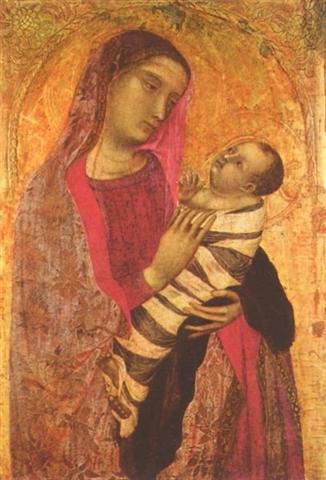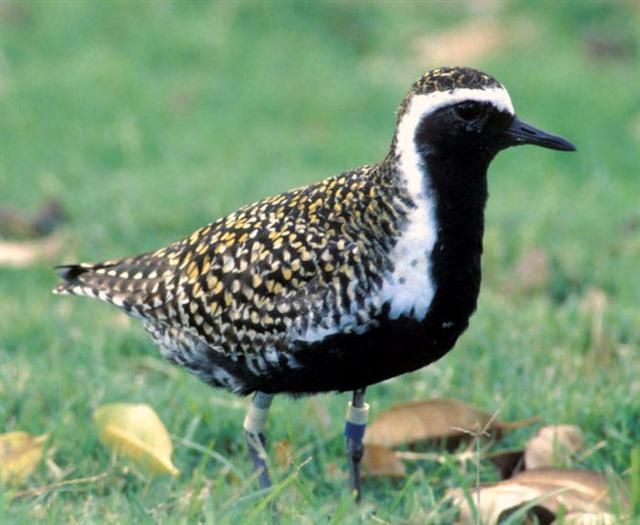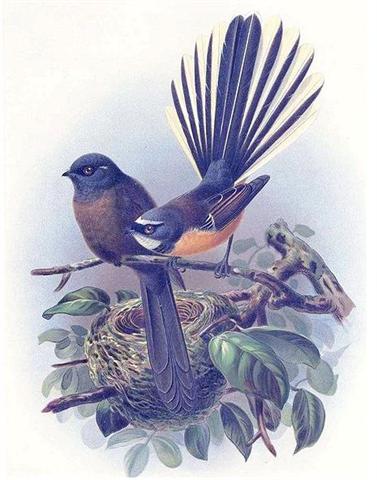Napoleon is known to often have had his right hand hidden:  Wikipedia: "The hand-in-waistcoat (also referred to as hand-inside-vest, hand-in-jacket, hand-held-in, or hidden hand) was a gesture commonly found in portraiture during the 18th and 19th centuries. The pose appeared by the 1750s to indicate leadership in a calm and firm manner. The pose is most often associated with Napoleon I of France due to its use in several portraits made by his artist, Jacques-Louis David, amongst them the 1812 painting Napoleon in His Study. The pose, thought of as being stately, was copied by other portrait painters across Europe and America. The majority of paintings and photographs show the right hand inserted into the waistcoat/jacket but some sitters appear with the left hand inserted. The pose was also frequently seen in mid-nineteenth century photographs. The pose traces back to classical times - Aeschines, founder of a rhetoric school, suggested that speaking with an arm outside one's toga was bad manners. Arline Meyer, in her essay Re-Dressing Classical Statuary: The Eighteenth-Century 'Hand-in-Waistcoat' Portrait, notes the pose being used in eighteenth century British portraiture as a sign of the sitter's breeding. Francois Nivelon's A Book Of Genteel Behavior of 1738 noted the hand-inside-vest pose denoted 'manly boldness tempered with modesty'. With the invention of photography, the pose continued but may have had an additional purpose in preventing blurring by maintaining the sitter's hand in a single place. The pose is commonly seen in photographs of members of the military, with a number of American Civil War photographs showing the pose (or indicated by three open buttons on a sitter's tunic)." The sign of the left hand hidden (puo) must mean the opposite of having the right hand ought of sight. The right hand wields the sword while the left hand stays close to the heart while nursing a baby.  "... from the beginning of mankind sex has been a battle which women win, turning the death of the man (detumescence) into the life of the people (the child). Maori say, 'the genitals of women are killers of men' ..." (Sahlins)
... And then she looked in her hand, she inspected it right away, but the bone's saliva wasn't in her hand. It is just a sign I have given you, my saliva, my spittle. This, my head, has nothing on it - just bone, nothing of meat. It's just the same with the head of a great lord: it's just the flesh that makes his face look good. And when he dies, people get frightened by his bones. After that, his son is like his saliva, his spittle, in his being, whether it be the son of a lord or the son of a craftsman, an orator. The father does not disappear, but goes on being fulfilled. Neither dimmed nor destroyed is the face of a lord, a warrior, craftsman, an orator. Rather, he will leave his daughters and sons. So it is that I have done likewise through you. Now go up there on the face of the earth; you will not die. Keep the word. So be it, said the head of One and Seven Hunaphu - they were of one mind when they did it ...
... There is a couple residing in one place named Kui and Fakataka [creating a circle]
After the couple stay together for a while Fakataka is pregnant. So they go away because they wish to go to another place - they go. The canoe goes and goes, the wind roars, the sea churns, the canoe sinks. Kui expires while Fakataka swims. Fakataka swims and swims, reaching another land. She goes there and stays on the upraised reef in the freshwater pools on the reef, and there delivers her child, a boy child. She gives him the name Taetagaloa. When the baby is born a golden plover flies over and alights upon the reef. (Kua fanau lā te pepe kae lele mai te tuli oi tū mai i te papa). And so the woman thus names various parts of the child beginning with the name 'the plover' (tuli): neck (tuliulu), elbow (tulilima), knee (tulivae) ...
... My son, said Makea tutara one evening at dusk, when they were sitting outside the house, I have heard from your mother and from others that you are brave and capable, and that in everything you have undertaken in your own country you have succeeded. That says a great deal for you. But I have to warn you: now that you have come to live in your father's country you will find that things are different. I am afraid that here you may meet your downfall at last. 'What do you mean?' said Maui. 'What things are there here that could be my downfall?' 'There is your great ancestress Hine nui te Po', said Makea, gravely. And he watched Maui's face as he mentioned the name of Great Hine the Night, the daughter and the wife of Tane and goddess of death. But Maui did not move an eyelid. 'You may see her, if you look', Makea went on, pointing to where the sun had gone down, 'flashing over there, and opening and closing, as it were'. His thoughts were on death as he spoke. For it was the will of Hine nui, ever since she turned her back on Tane and descended to Rarohenga, that all her descendants in the world of light should follow her down that same path, returning to their mother's womb that they might be mourned and wept for. 'Oh, nonsense', said Maui affectionately to the old man. 'I don't think about that sort of thing, and you shouldn't either. There's no point in being afraid. We might just as well find out whether we are intended to die, or to live forever.' Now Maui had not forgotten what his mother once said about Hine nui te Po: that he would some day vanquish her, and death would then have no power over men. He remembered this now, and was not moved by his father's fears. But Hine nui was the sister of Mahuika, and she knew of Maui's dangerous trickery at the abode of fire, and was resolved to protect her other descendants from further mischief of this kind. 'My child', said Makea now in a tone of deep sorrow, 'there has been a bad omen for us. When I performed the tohi ceremony over you I missed out a part of the prayers. I remembered it too late. I am afraid this means that you are going to die.' 'What's she like, Hine nui te Po?' asked Maui. 'Look over there', said Makea, pointing to the ice-cold mountains beneath the flaming clouds of sunset. 'What you see there is Hine nui, flashing where the sky meets the earth. Her body is like a woman's, but the pupils of her eyes are greenstone and her hair is kelp. Her mouth is that of a barracuda, and in the place where men enter her she has sharp teeth of obsidian and greenstone.' 'Do you think she is as fierce as Tama nui te ra, who burns things up by his heat?' asked Maui. 'Did I not make life possible for man by laming him and making him keep his distance? Was it not I who made him feeble with my enchanted weapon? And did the sea not cover much more of the earth until I fished up land with my enchanted hook?' 'All that is very true', said Makea. 'And you are my last-born son, and the strength of my old age. Very well then, be it as it will. Go there, and visit your ancestress if that is what you wish. You will find her there where the earth meets the sky.' And they sat for a while in the dusk, until the red clouds turned grey and the mountains into black. Next morning early, Maui went out looking for companions for the expedition. The birds were up when he left, and among them he succeeded in finding several who were willing to go with him. There was tiwaiwaka, the little fantail, flickering about inquisitively and following Maui along the track as if he might have something for him. There was miromiro, the grey warbler, tataeko, the whitehead, and pitoitoi, the robin, who is almost as tame and curious as the fantail. Maui assembled a party of these friends and told them what he intended to do. They knew it was an act of great impiety to invade the realm of Hine nui te Po with mischievous intentions. And now, they learned, it was Maui's idea to enter her very body. He proposed to pass through the womb of Great Hine the Night, and come out by her mouth. If he succeeded, death would no longer have the last word with regard to man; or so his mother had told him long ago. This, then, was to be the greatest of all his exploits. Maui, who once had travelled eastward to the very edge of the pit where the sun rose, and southward over the great Ocean of Kiwa to where he fished up land, and all the way to the dwelling-place of Mahuika - Maui now proposed a journey to defy great Hine in the west. Taking his enchanted weapon, the sacred jawbone of Muri ranga whenua, he twisted its strings around his waist. Then he went into the house and threw off his clothes, and the skin on his hips and thighs was as handsome as the skin of a mackerel, with the tattoed scrolls that had been carved there with the chisel of Uetonga. And off they went, with the birds twittering in their excitement. When they arrived at the place where Hine nui lay asleep with her legs apart and they could see those flints that were set between her thighs, Maui said to his companions: 'Now, my little friends, when you see me crawl into the body of this old chieftainess, whatever you do, do not laugh. When I have passed right through her and am coming out of her mouth, then you can laugh if you want to. But not until then, whatever you do.' His friends twittered and fluttered about him and flew in his way. 'O sir', they cried, 'you will be killed if you go in there.' 'No', said Maui, holding up his enchanted jawbone. 'I shall not - unless you spoil it. She is asleep now. If you start laughing as soon as I cross the threshold, you will wake her up, and she will certainly kill me at once. But if you can keep quiet until I am on the point of coming out, I shall live and Hine nui will die, and men will live thereafter for as long as they wish.' So his friends moved out of his way. 'Go on in then, brave Maui', they said, 'but do take care of yourself'. Maui at first assumed the form of a kiore, or rat, to enter the body of Hine. But tataeko, the little whitehead, said he would never succeed in that form. So he took the form of a toke, or earth-worm. But tiwaiwaka the fantail, who did not like worms, was against this. So Maui turned himself into a moko huruhuru, a kind of caterpillar that glistens. It was agreed that this looked best, and so Maui started forth, with comical movements. The little birds now did their best to comply with Maui's wish. They sat as still as they could, and held their beaks shut tight, and tried not to laugh. But it was impossible. It was the way Maui went in that gave them the giggles, and in a moment little tiwaiwaka the fantail could no longer contain himself. He laughed out loud, with his merry, cheeky note, and danced about with delight, his tail flickering and his beak snapping. Hine nui awoke with a start. She realised what was happening, and in a moment it was all over with Maui. By the way of rebirth he met his end. Thus died this Maui we have spoken of, who was formed in the topknot of Taranga and cast in the sea, but was saved and nurtured to lead a life of mischief. And thus did the laughter of his companions at the last and most scandalous of his exploits deprive mankind of immortality. For Hine nui always knew what Maui had it in mind to do to her. But she knew that it was best that man should die, and return to the darkness from which he comes, down that path which she made to Rarohenga. Wherefore our people have the saying: 'Death came to the mighty when Maui was strangled by Hine nui to Po, and so it has remained in the world' ... (Maori Myths)
|



